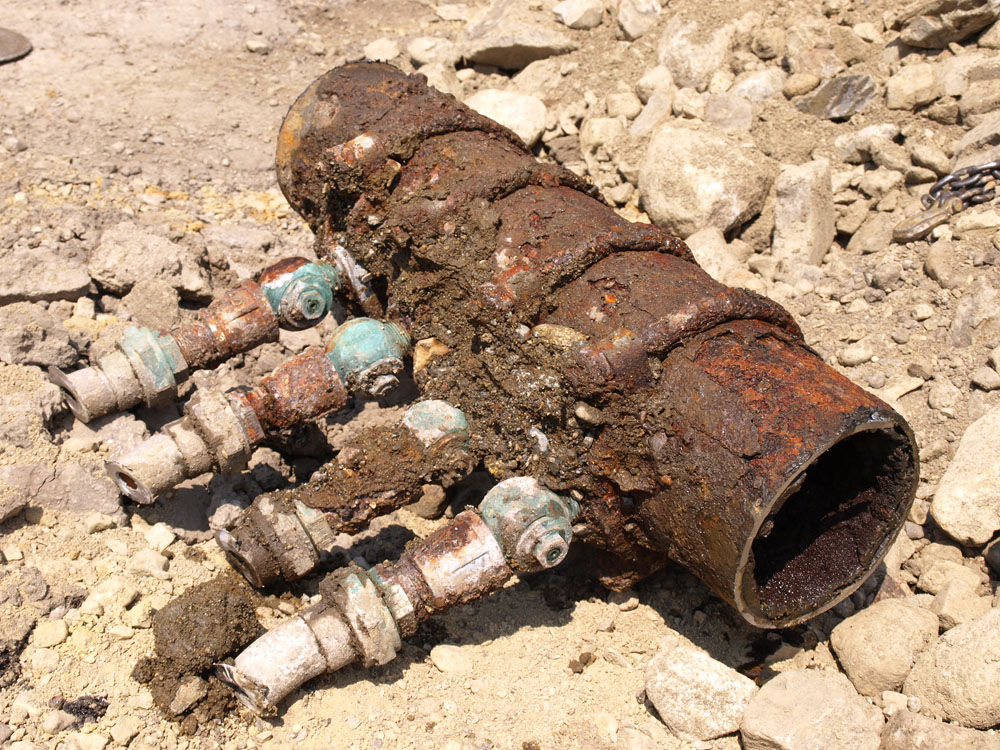
Newark, NJ – Clean Water Action joins Governor Murphy, NJDEP Commissioner McCabe, Newark’s Mayor Ras Baraka, and other officials to announce the results of the water testing taken after concerns were raised in August about the effectiveness of the filters being utilized as an interim measure of protection. Since the August findings, the city was ordered by the EPA to supply bottled water at distribution centers to over 18,000 households with lead service lines. The city is also in the process of replacing all 18,000 lead service lines (LSL), but it will take time and huge influx of money which it recently secured. Since March 2019, nearly 800 LSL have been replaced to date. Newark is not the only NJ municipality to be confronted with aged infrastructure and lead pipes.
Today, it was announced that the samples and testing of the filter’s effectiveness in screening out lead in Newark’s drinking water came back with good news. Governor Murphy stated that 97% of filters in place are effective immediately at reducing lead, and they are 99% effective after running the tap for five minutes. This is after reviewing about 1700 samples from over 300 homes.
“I am very encouraged that the drinking water filters they tested at the tap were working according to specifications,” stated Kim Gaddy, South Ward resident and Environmental Justice Organizer, Clean Water Action. “Homes should be a place that shelter us from harm, not a causer of one. We need every level of protection available to reduce the cumulative impacts of lead in our homes. This is especially true for renters like myself, who depended on responsible landlords, like mine, to act.” 75% of Newark residents are renters. With the infusion of funding and municipal ordinance, the city will be allowed to replace all LSLs without any partial payment requirement from homeowners to replace the LSLs.
In 2017, Newark was cited by the NJ Department of Environmental Protection to be in violation of the federal Safe Drinking Water Act’s lead and copper rule. There were enough tap water samples taken at the first draw above 15 parts per billion (ppb) to mandate action. In 2018, it was discovered that the city’s chemical corrosion control in the Pequannock portion of the water system was not working properly and the protective “scale” on the pipes was flaking off. The city has switched over to a more effective and widely used process in May 2019. Within a year, the full benefits of re-scaling both pipes and fixtures are likely to be achieved. The city initially established a low cost LSL replacement program that was estimated to take 7 years to complete. In the interim, the city distributed over 35,000 water filters with a year’s supply of replacement cartridges.
Since then, the City of Newark has established an unprecedented and ambitious timetable of 36 months for completing all 18,000 LSL replacements. This was made possible with the issuing of Essex County-backed bonds ($120 million) and city’s own earlier financing ($75 million), Newark will now be able to replace all LSLs at no direct cost to all affected homeowners. Additional federal resources could be made available as a result of US Senators Booker and Menendez’s unanimous vote and subsequent House passage for a one time transfer of $100 million of federal water infrastructure dollars to drinking water programs.
As residents wait in the queue for their lead service line replacement, Newark residents must become better educated and still take appropriate precautions. If you are not sure if you need a LSL replacement or if you have lead in your water, contact the Newark Water Department. If you do, get a water filter and replacement cartridges. Learn how to properly install and maintain your filter. If you feel better using bottled water, the city will supply it in the interim.
“One of the most important things that Newark must do is TAKE BACK THE TAP – LET THE WATER RUN,” explained Amy Goldsmith, State Director Clean Water Action. “The corrosion control system will not work and recoat pipes and fixtures if you do not run your water at the tap. Flush the system without wasting water… wash your dishes, clothes, bathe, water your plants, shave, flush your toilet. It costs less than two cents to flush your faucet for 5 minutes. It is worth it in the short and long run. Even with LSL replacement (80% of the source of lead), you still may have a lead solder fixture.
Clean Water Action knows that community-based trainings will ensure better outcomes, faster action and more effective interim protections. We also know that the best communicators are neighbor to neighbor. Earlier this year, Clean Water Action trained and paid Newark residents to be community outreach workers. They educated and signed up thousands households for water testing, filters, and LSL replacements. We hope to be able to expand this effort to health care and social service providers, as well as daycare centers and young mothers’ programs. Infants on formula, pregnant women and nursing moms are most vulnerable as 40-60% of their lead intake is from drinking water, later to be replaced by exposure to lead from paint.
Our nation needs to scale up comprehensive local, state, and federal healthy homes programs and funding,” continued Goldsmith. “It takes a coordinated strategy with everyone working together and keeping the public informed. Fortunately, Newark is now on a path towards Taking Back our Tap water. This is no small feat. There have been many bumps in the road and Newark will not remove all lead pipes overnight; but there is now a path to get there and the money to do it.”
For more information about lead in water, go to Clean Water Action: www.cleanwateraction.org/features/drinking-water-new-jersey
To learn about and sign up for Newark’s free water and pipe testing, free filter and lead service line replacement, visit: www.newarkleadserviceline.com/